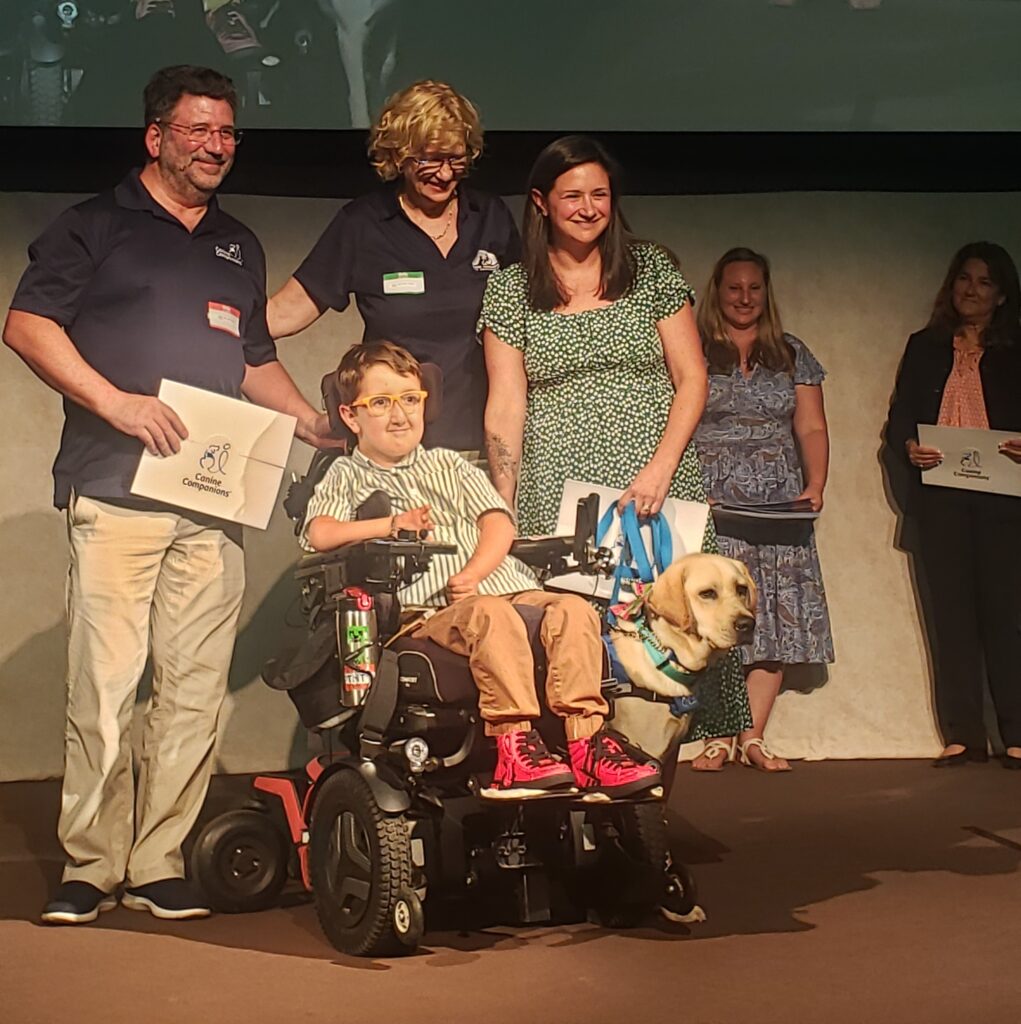Cover photo – prostooleh on Freepik
In a heartwarming ceremony, Canine Companions celebrated the graduation of several service dogs who have completed their training and are now ready to assist individuals with disabilities. The “moving up” ceremony, held this past Friday, marked the culmination of a rigorous two-year training process for the dogs, who will now provide life-changing support to their new partners.
Canine Companions, a national nonprofit organization, trains service dogs to assist people with a range of disabilities, excluding those who require seeing-eye dogs. These highly skilled dogs are trained to perform tasks such as picking up dropped items, opening wheelchair-accessible doors, and assisting with other activities of daily living (ADLs). Beyond their functional abilities, these dogs also offer companionship, helping their partners engage more fully with both their home environments and the outside world.
Among the dogs that graduated this weekend, two have found their new homes right here on Long Island. One will be placed with a partner in Bayshore, and the other with a partner in Port Jefferson. The dogs bonded immediately with their new owners, who were visibly excited to welcome them home.

Bear, a nine-year-old from Bay Shore has waited close to two years to receive his service dog. When Bear met Vanni, they instantly bonded. When asked how he felt about receiving his new friend Bear stated, “I am so excited, and I don’t have to wait anymore. I have a helper and someone to snuggle with.”
Maddie, another recipient from Port Jefferson was bursting with excitement over receiving her first service dog.
“I love him, he’s my good boy. We love to take walks outside, go to school, and play fetch,” said Maddie. Maddie’s family was over the moon that her and her new dog, Nantucket, clicked right away.
The dogs, typically Golden Retrievers and Black Labrador Retrievers, are known for their adaptability and ease of transition from one environment to another. These breeds are carefully selected for their temperament, intelligence, and physical capabilities. Before they can be placed with their partners, the dogs undergo thorough health screenings to ensure they are free from genetic issues, such as hip dysplasia, which could affect their ability to perform their duties long-term.
The path to becoming a service dog is a demanding one, both for the dogs and their trainers. The process begins with puppy training, where the dogs learn basic obedience and socialization skills. As they progress, the training becomes more specialized, focusing on the specific tasks they will need to perform for their future partners. This formal training is designed to ensure that the dogs can reliably assist with various ADLs, providing their partners with greater independence and improving their quality of life.
The cost of training a service dog can be upwards of $50,000, a significant investment that reflects the extensive resources and expertise required to prepare these animals for their roles. However, for the individuals who receive these dogs, the benefits are immeasurable and priceless.
“What stood out to me and while working with the volunteers is the feeling of comradery in the community,” said Sue Parrinelo, Volunteer Coordinator for the Northeast Region. “They all come together and support us. It truly takes a village”.
For the graduates of Canine Companions’ program, the ceremony was not just an end, but the beginning of a transformative partnership. These dogs will provide their new owners with much-needed assistance, companionship, and a pathway to a more inclusive lifestyle. The success of this program underscores the profound difference that service dogs can make in the lives of those with disabilities, offering them both support and a loyal friend for years to come.